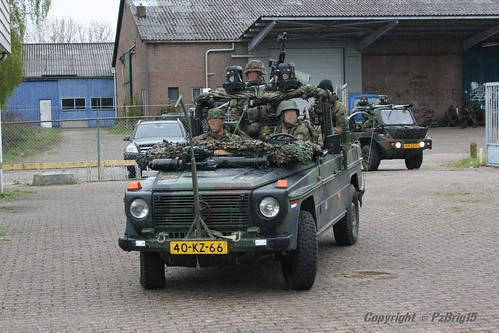This case could potentially have been a very explosive one. Like it or not, the G-Wagen incident
involved spurious orders and unit culture and could have become a catchall for something many Singaporean conscripts would have experienced. The fact that a five-day safety timeout was ordered back then in 2012 might also mean that an astute staff team realized that deep issues had made themselves felt despite the SAF's avowed strong safety culture.
involved spurious orders and unit culture and could have become a catchall for something many Singaporean conscripts would have experienced. The fact that a five-day safety timeout was ordered back then in 2012 might also mean that an astute staff team realized that deep issues had made themselves felt despite the SAF's avowed strong safety culture.
 |
| MB-290 type jeep much like that involved |
(Admirably, the conducting officer has been charged as well.)
A "weak safety culture", as uncovered by the committee of inquiry, is one thing, but another deeper issue exists.
The issue in this case in my opinion would be one of the military's culture. It is admirable and right to say that soldiers ought not to follow illegal orders. However, where's the protection for troops in this situation? What institutions guarantees soldiers' safety and welfare (not rights, not in Singapore) if they make a fuss? I only recall a cursory hour-long treatment of military law delivered one groggy evening in BMT, although I hope this has changed.
For example, if a junior is unsure of his orders, he can verify them with his superior's superior, and can but need not obey in certain situations and must not in others. If the order is illegitimate and he carries it out, he has to take responsibility as well.
It's not just a set of broadly stated 'mission statements', too. I am unclear as to how well it is enforced in day-to-day operations, but there is a genuine commitment to this. For example, the Federal Republic and Germany today has no special military courts - all offences are tried in civilian courts. Such a stated goal can very easily break down, the military being a world apart, so constant care from the civilian sector and of course the military's own leadership is always needed. It may reduce flexibility in some instances, but this is but an aside point.
Stuff like this certainly won't solve being trapped in ire, say, if you do something unpopular but right, or choose not to compromise, but this is one's personal decision and you ought to defend it. It can however provide encouragement to question itself in a constructive manner, and empower conscripts rather than appealing to "man mode". On a more philosophical level, it's asking "why" rather than "how". Deeper change is needed than a judge's announcement and MINDEF press releases, which are simply treated with derision by HardwareZone and the like.
In the end, a refusal to confront such issues simply leads more to practices like displaying your license on the dash in lieu of real organizational shifts.
Frankly, this situation upsets your author because this was 3 3SG instructors in the back of a jeep tearing around the training grounds, one very familiar to me as a former spec. The last line of the article was even worse, and the reporter was clever putting the line about the "orders" in. I can only imagine what was really said.
